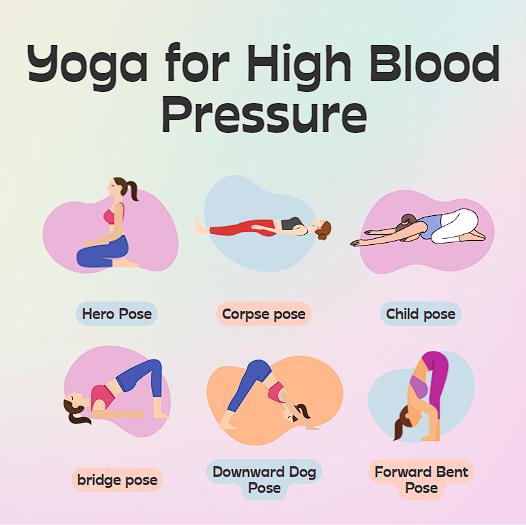The word Vitamin is made up of two words. Vita means life and Amins means Base i.e. Vitamins are the basis of life. Hence, such organic substances which are very essential for the proper growth and life functions of animals and humans are called Vitamins. Vitamins are very important for our physical health because our body cannot produce all the vitamins on its own. Our body cannot produce vitamins on its own except Vitamin D, hence it is important to eat food rich in vitamins.
Why are vitamins important for our body?
Vitamins and minerals are essential nutrients for our body. Our body needs them to stay healthy and function well. They are important for countless processes in our body. They are necessary for everything from fighting infection to healing wounds, developing and maintaining strong bones and teeth, and helping to regulate hormones. Consistently inadequate levels of vitamins and minerals can cause many serious health problems. This leads to many deficiencies in our body. By consuming a balanced diet, our body gets adequate amounts of all types of vitamins, which maintains our health.
Types of Vitamins
There are 13 types of vitamins, which are also very important for our body.
Vitamin A
The chemical name of vitamin A is retinol. It is a fat-soluble vitamin. Vitamin A provides strength and power to the muscles and bones of our body. Vitamin A maintains the balance of calcium in the blood and is also useful for treating acne. Deficiency of vitamin A can cause eye diseases. Milk, green vegetables, cheese, etc. are the main sources of vitamin A.
Vitamin B
Vitamin B – There are many forms of vitamin B.
Vitamin B-1: The chemical name of vitamin B-1 is thiamine. It is a water-soluble vitamin. Sunflower seeds, cereals, potatoes, oranges, and eggs are the main sources of vitamin B-1. Vitamin B-1 is essential for the development of our brain. Its deficiency can cause beriberi disease.
Vitamin B-2: The chemical name of vitamin B-2 is riboflavin. It is a water-soluble vitamin. Its main sources are bananas, milk, curd, meat, eggs, green beans, and fish. It is very useful for keeping our skin healthy.
Vitamin B-3: The chemical name of vitamin B-3 is niacin. It is a water-soluble vitamin. Dates, milk, eggs, tomatoes, carrots, and avocados are its main sources. Vitamin B-3 helps in controlling blood pressure and reducing headaches and diarrhea.
Vitamin B-5: The chemical name of vitamin B-5 is pantothenic acid. It is a water-soluble vitamin. Its main sources are avocado, cereals, and meat. Vitamin B-5 keeps hair healthy and prevents it from turning grey. It also reduces stress.
Vitamin B-6: The chemical name of vitamin B-6 is pyridoxine. It is a water-soluble vitamin. Its main sources are grains, meat, bananas, and vegetables. Vitamin B-6 reduces morning fatigue. It also provides relief from stress and insomnia.
Vitamin B-7: The chemical name of vitamin B-7 is biotin. It is a water-soluble vitamin. Egg yolk and vegetables are its main sources. It is very good for skin and hair.
Vitamin B-9: The chemical name of vitamin B-9 is folic acid. It is a water-soluble vitamin. Leafy vegetables and sunflower seeds are their main sources. It is very good for the treatment of skin diseases and arthritis.
Vitamin B-12: The chemical name of vitamin B-12 is cyanocobalamin. It is a water-soluble vitamin. Fish, meat, milk, and eggs are the main sources of Vitamin B12. It reduces diseases like anemia (lack of blood), and ulcers in the mouth.
Vitamin C
The chemical name of vitamin C is ascorbic acid. It is a water-soluble vitamin. It is very essential for our skin and bones. A good amount of vitamin C is found in tomatoes and broccoli.
Vitamin D
Vitamin D helps in absorbing calcium in our body. It also helps in strengthening our immune system and reduces tooth decay. Our body makes vitamin D itself when it gets sunlight. Fish liver, egg yolk, and cheese are sources of vitamin D which contain very small amounts of vitamin D.
Vitamin E
The chemical name of vitamin E is tocopherols. It is a fat-soluble vitamin. Vitamin E strengthens our immune system. Vegetable oil, cereals, almonds, and avocado are the main sources of vitamin E. One should consult a doctor before taking any supplement for vitamin E. Vitamin E deficiency can cause muscle weakness, coordination difficulties, numbness, and vision problems.
Vitamin k
The chemical name of vitamin K is phylloquinone. It is a fat-soluble vitamin. Vitamin K helps our body by making proteins for healthy bones and tissues.
Function of vitamins in the body
Both vitamins and minerals are essential for body functions such as helping our body fight infections, healing wounds, strengthening our bones, and regulating hormones. Vitamins help in good growth. There are small tissues in our body that start breaking down due to a lack of vitamins. And we have to face many diseases. Therefore, both vitamins and minerals are essential for our body.
Source of Vitamins
| Vitamins | Source of Vitamins |
| Vitamin A | Milk, Butter, Green Vegetables and Fruits |
| Vitamin B-1 | White flour, cereals, pasta, rice, beverages, nuts |
| Vitamin B-2 | Bananas, milk, curd, eggs, green beans |
| Vitamin B-3 | Green peas, chicken, mushrooms, broccoli, almonds |
| Vitamin B-5 | Whole grains, cauliflower, tomatoes, soybeans, pulses |
| Vitamin B-6 | Fish, dry yeast, whole grains, legumes |
| Vitamin B-7 | Sweet potatoes, tuna fish, nuts, oatmeal, spinach |
| Vitamin B-9 | Oranges, cereals, bread, green leafy vegetables, pasta |
| Vitamin B-12 | Meat, fish, eggs, milk, fruit |
| Vitamin C | Amla, orange, tomato, guava, plum |
| Vitamin D | Sunshine, famous, fish, fortified milk |
| Vitamin E | Meat, poultry, fish, almonds |
| Vitamin K | Leafy vegetables, broccoli |
Diseases caused by deficiency of vitamins
| Vitamins | Diseases caused by vitamin deficiency |
| Vitamin A | Cataract, dry skin, night blindness |
| Vitamin B-1 | Irritability, loss of appetite, weight loss, beriberi |
| Vitamin B-2 | Skin rash, redness of the eyes, blisters in the mouth |
| Vitamin B-3 | Diarrhea, skin rash, dementia |
| Vitamin B-5 | Insomnia, vomiting, stomach pain, fatigue, burning sensation in the legs |
| Vitamin B-6 | Anemia, skin disease, brain not functioning properly, weight loss |
| Vitamin B-7 | Hair loss, redness around eyes, swelling in hands and feet, lack of growth |
| Vitamin B-9 | Anemia, heart disease, shortness of breath |
| Vitamin B-12 | Dizziness, anemia, rapid heart rate |
| Vitamin C | Inflammation of gums, scurvy |
| Vitamin D | Muscle pain, bone pain, tooth decay, skin disease |
| Vitamin E | Muscular problems |
| Vitamin K | Hemophilia, body cramps, |


